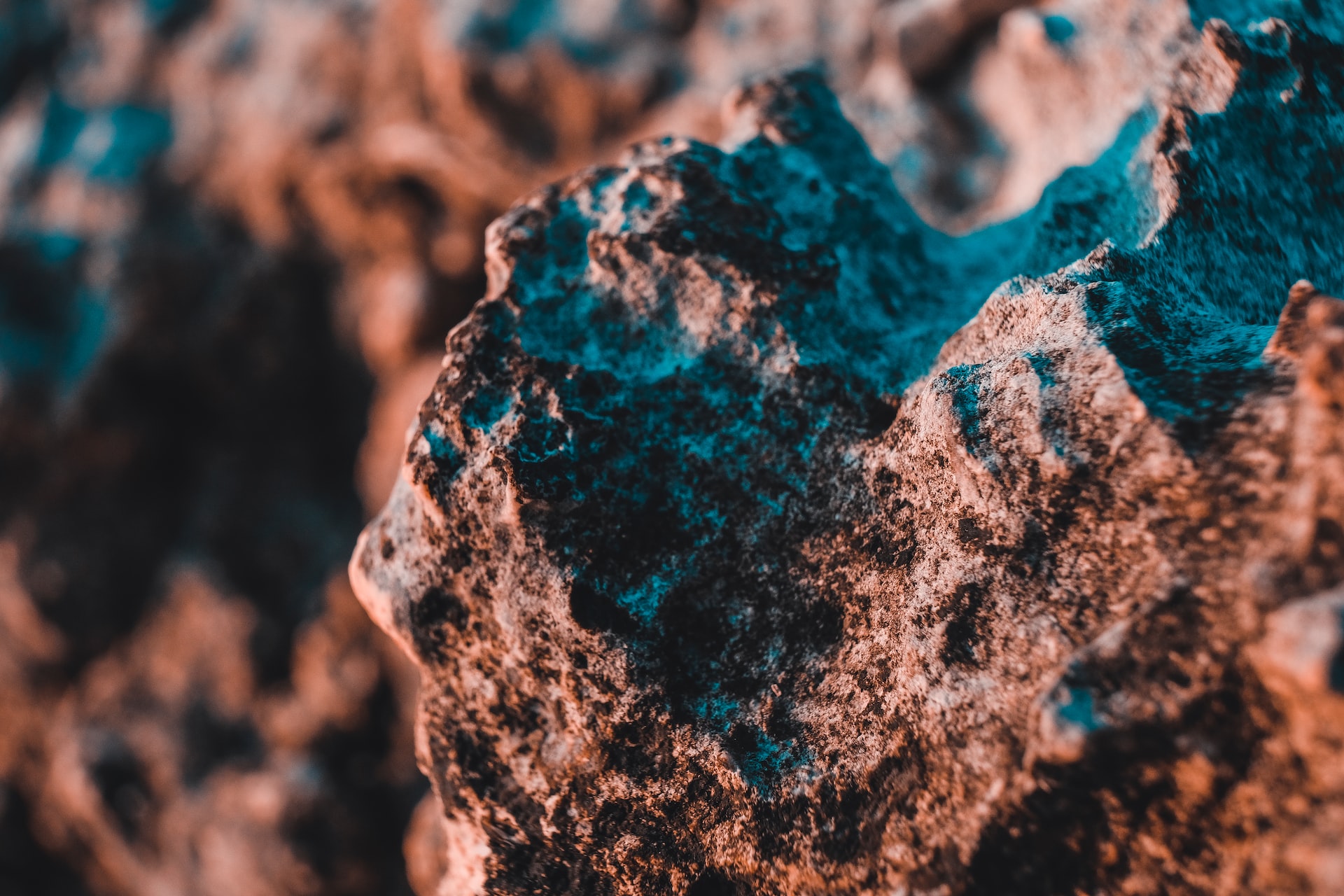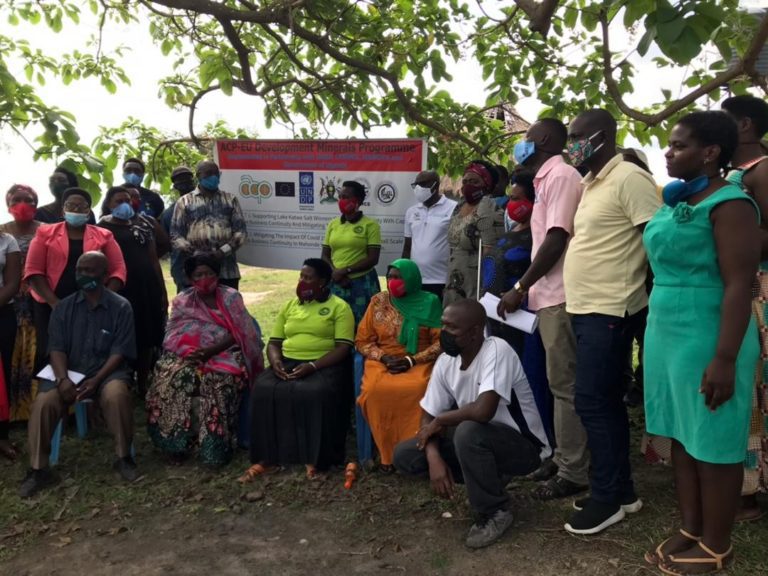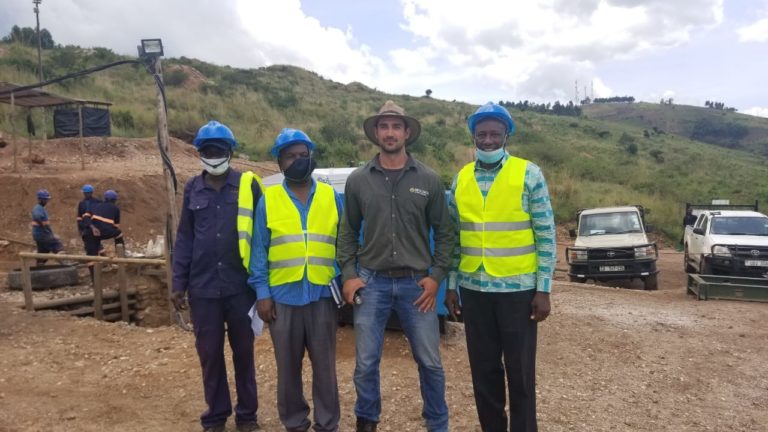MADI is one of a 16-member Consortium that will be involved in the implementation of the AfricaMaVal project. The 7.85 million Euro Project will be coordinated by BRGM the French Geological Survey
Objective
Secure access to Critical Minerals is key for the European ambition to deliver the Green Deal and to perform the energy and digital twin transition. The future demand for the Critical Minerals (Primary raw materials to green Industries) will continue to be largely met by importation. As EU needs to diversify its supply chain and engage strategic partnerships with resource-rich African countries covering extraction, processing, and refining of these minerals in Africa. Partnerships along the Regional and Global Critical Minerals Value Chains. In this framework, AfricaMaval Project aims to develop EU-Africa partnership ensuring responsible sourcing of mineral resources for the EU Industries while granting Africa an opportunity to add value as wells ensuring sustainable (local – domestic) development in the best Environmental, Social and Governance (ESG) conditions and leading to a long-term business environment for EU and African Businesses (companies)
AfricaMaVal will focus on the minerals and metals presented in the Fourth list of Critical Raw Materials for the EU1 as well as on Copper (Cu), Nickel (Ni), Tin (Sn) and Manganese (Mn) that are particularly pertinent considering Africa’s geological potential and their critical status in the digital and energy twin transitions. In this proposal, an “Extended CRM” list (ECRM) will be used (See Annexes)
The consortium created with partners covering both Africa and Europe, is based on experienced organisations and networks deeply anchored and involved in the minerals sector and a specific expertise and knowledge of the African culture, organisations, difficulties (challenges) and resources. The minerals, financial, environmental, social, institutional and economical aspects will be studied along all the value chains, including the Artisanal Small Scale Mining (ASSM) activities, to the project completion to reach its operational targets;
- Building an EU and Africa business networking on the whole ECRM value chains.
- Developing a strategy on the integration of identified and emerging EU and African raw materials value chains for the energy and digital transition.
- Assessing responsible investment opportunities
The AfricaMaVal Project will conduct ten case studies in African countries and an evaluation of 100 investment opportunities, and dissemination within Europe and Africa to promote responsible sourcing and will implement a sustainable organisation the completion of the project.
In line with the African Mining Vision and the African Mining Partnership (the intergovernmental forum of African ministers responsible for mining) which was converted into the African Union Specialized Technical Committee for Trade, Industry and Minerals, most of the 10 identified objectives of the communication “Towards a comprehensive Strategy with Africa”, connected with the UN SDGs5 , are directly related to the AfricaMaVal project such as:
- Substantially increase environmentally, socially, and financially sustainable investments that are resilient to the impacts of climate change; promote investment opportunities by scaling up the use of innovative financing mechanisms; and boost regional and continental economic integration, particularly through the African Continental Free Trade Agreement.
- Attract investors by supporting African states in adopting policies and regulatory reforms that improve the business environment and investment climate, including a level-playing field for business.
- Rapidly enhance learning, knowledge and skills, research, and innovation capacities, particularly for women and youth, protecting and improving social rights, and eradicating child labour.
- Adapt and deepen EU support to African peace efforts through a more structured and strategic form of cooperation, with a particular focus on regions where vulnerabilities are the highest.
- Integrate good governance, democracy, human rights, the rule of law and gender equality in actions and cooperation.
One sentence in this communication especially corresponds to the spirit with which the consortium and the project have been built: “To benefit both continents, our partnership should be based on a clear understanding of our respective and mutual interests and responsibilities, reflecting the comprehensiveness and maturity of our relationship”. Setting out from this mutual interest, the AfricaMaVal project have been built around three main objectives:
- Contribute to a responsible sourcing to reinforce Europe’s industrial leadership.
- Stimulate the co-development of a partnership between EU and Africa in the raw material sector.
- Foster sustainable EU and Africa partnerships and investments along the raw materials value chain.
Scope


The AfricaMaVal pillars
The AfricaMaVal Project will cover the whole continent and is structured in 9 (nine key Pillars) Work Packages (WPs) as indicated above. The tasks will be implemented at three different scales: continental African level, regional level and national level with ten national case studies, i.e., DRC, Senegal, Zimbabwe, Mozambique, Gabon, Namibia, Tanzania, Morocco, Madagascar and South Africa.
AfricaMaVal covers a total of 9 (Nine) Work Packages (WPs)out of which 7 WPs are Technical and 2 functional WPs – coordination and communication.
List of work packages
| WP No | Work Package Title | Lead Partner No | Lead Participant | Person- Months | Start month | End month |
| WP1 | Supply potential | 16 | LNEG | 62 | M0 | M24 |
| WP2 | The ECRM value chain analysis | 2 | DMT | 82.7 | M0 | M34 |
| WP3 | Financing instruments and funding requirements | 6 | HCF | 44 | M0 | M33 |
| WP4 | Environmental, Social, and Governance improvement for the Raw Material Value Chain support | 7 | AWIMA | 149.6 | M1 | M33 |
| WP5 | Building an EU and Africa business networking with upstream and downstream companies | 15 | MADI | 88 | M1 | M36 |
| WP6 | Developing a strategy for integration for EU and Africa value chains for the energy and digital transition | 4 | EIT | 34,3 | M1 | M36 |
| WP7 | Responsible Investment Opportunities | 5 | BGR | 83.9 | M1 | M36 |
| WP8 | Communication & Dissemination | 8 | LGI | 71.5 | M0 | M36 |
| WP9 | Coordination & Case study Management | 1 | BRGM | 177.4 | M0 | M42 |
| 793.4 PM |
MADI participation in AfricaMaVal
MADI is Lead Participant for Work Package 5 “Building an EU and Africa business networking with upstream and downstream companies”
WP5 Objective
WP5 aims at building an EU and Africa business network with upstream and downstream companies and steering the development of strategic partnerships and business models for EU-Africa industrial value chains integration. It will allow connecting different stakeholders of raw materials value chains, including final users, and strengthening the local governance and responsible business environments, together with other institutions and development partners (EITI, OECD, UNDP, WB, and Germany’s GIZ) with a focus on the informal sector. WP5 will develop new business models to integrate EU and Africa raw materials value chains, considering horizontal and vertical integration.
Description of work
Task 5.1 Mapping African clusters (M1-M18). Leader: MADI (25 PM) Contributors: EIT (2 PM), INTRAW (2 PM), CGS (3 PM)
In order to provide interested parties in the EU and on the African continent an overview over the raw materials business ecosystem (upstream and downstream), formal and informal players (large, small-scale, and artisanal) along the value chains, as well as networks and clusters will be mapped with the view to create an on-line accessible directory and networking platform (EU-Africa Raw Materials Networking Platform. The mapping will attempt to
capture relationships at local or regional levels, i.e., clusters of providers of equipment, support services, transport, education, etc. (intra- and inter-cluster network relationships, and the interdependences of industrial and ASSM clusters) at least for the case study countries.
Task 5.2 – Promoting local content and enabling mining cluster actors (M12-M24). Leader: INTRAW (9 PM) Partners: MADI (15 PM), EIT (2 PM), CGS (3 PM)
This task will improve the framework conditions for European and African companies and organisations to co- create new value, businesses, products and services by transforming the ways they interact. It aims to introduce a new set of sweeping measures that will substantially increase entrepreneurial capacity of individuals and organisations. The first step is the development of an Africa-focused mineral RM network (encompassing the technological, environmental, economic and social dimensions) bringing research, academia, industry and governmental stakeholders, to facilitate international collaboration. It will also promote the development of accredited education and training programs in mineral processing, mining engineering, geology and sustainability management to improve resources governance and close the RM skill gaps, building on and extending current programs (e.g., PanAfGeo, and the inter-university international partnership Education for Sustainable Development in Africa supported by the United Nations University Institute for the Advanced Study of Sustainability), to be delivered (for free) through Massive Open Online Courses. The last subtask will rely on the settlement of a trans-African mentoring network and scheme for placement of interns and apprentices with upstream and downstream players in the extractive industry.
Task 5.3 – Strengthening African mining clusters with a view to build B2B relations (M18-M36). Leader:
EIT (7 PM) Partners: MADI (15 PM), INTRAW (2 PM), CGS (3 PM)
This task aims at creating resilient value chains that integrate SME and ASSM actors in the EU and Africa in upstream and downstream clusters, harnessing the full potential of the African Continental Free Trade Area (AfCFTA) and existing EU-Africa cooperation networks. RM value chains have to be viewed in a wider economic context in order to understand the preferences for allocating scarce public and private capital. Thus, several targeted measures will be implemented: i) from WP3, analyse options for setting policy/financial incentives to develop international clusters across the raw materials value-chains; ii) Explore alternative financing models, such as micro-finance or crowdfunding (WP3 and WP4) using the country case studies; iii) with WP3 and WP6 and international development actors (OECD, UNDP, WB, ADB, GIZ, AFD, etc.), negotiate with upstream and downstream companies to contribute to a special basket fund (CSI fund) for funding training and networking activities; iv) conduct structured and targeted Business-to-Business (B2B) networking events vertically or transversally across the value-chains that can bring together interested actors face to face (at relevant regional events) and online through the EU-Africa Raw Materials Networking Platform developed in Task 5.1; v) foster win-win partnerships/twinning between clusters and value chain actors in Africa and the EU based on the EU- Africa Raw Materials Networking Platform in brokerage events.
Deliverables
- D5.1 – Web-based EU-Africa Raw Materials Networking Platform (MADI, M18, M36)
- D5.2 – Report on improved framework conditions for building business relationships (INTRAW, M30)
- D5.3 – Report on enabling networking and B2B relationship building (EIT, M36)
- D5.4– Case Study conducted on Zimbabwe
Duration
This is a 36 month – (three-year project)
Annex 1
List of participants
| Participant No. | Participant organisation name | Short name | Country |
| 1Coord. | BUREAU DE RECHERCHES GÉOLOGIQUES ET MINIÈRES | BRGM | France |
| 2 | DMT GmbH & CO. KG | DMT | Germany |
| 3 | DMT-KAI BATLA PTY LTD | DMT KB | South Africa |
| 4 | EIT RAW MATERIALS GMBH | EIT | Germany/Pan EU |
| 5 | BUNDESANSTALT FUER GEOWISSENSCHAFTEN UND ROHSTOFFE | BGR | Germany |
| 6 | HCF International Advisers Limited | HCF | United Kingdom |
| 7 | Association of Women in Mining in Africa (AWIMA) | AWIMA | Ghana/Pan-African |
| 8 | LGI SUSTAINABLE INNOVATION | LGI | France |
| 9 | INTERNATIONAL RAW MATERIALS OBSERVATORY AISBL | INTRAW | Belgium |
| 10 | Southern African-German Chamber of Commerce and Industry NPC | AHK | South Africa |
| 11 | Scuola Superiore di Studi Universitari e di Perfezionamento Santa Anna | SSSA | Italy |
| 12 | Namibia University of Science and Technology | NUST | Namibia |
| 13 | EuroGeoSurveys- EGS | EGS | Belgium/Pan-EU |
| 14 | Levin Sources Limited | LS | United Kingdom |
| 15 | Minerals Africa Development Institution (MADI) | MADI | Uganda/Pan-African |
| 16 | Laboratorio Nacional de Energia e Geologia I.P. | LNEG | Portugal |
| 17 | World Resources Forum Association | WRFA | Switzerland |
| 18 | Council For Geoscience | CGS | South-Africa/Pan-African |
Annex 2
The EU Fourth List of critical Raw materials
The 2020 assessment covers a larger number of materials: 83 individual materials or 66 candidate raw materials comprising 63 individual and 3 grouped materials (ten individual heavy rare earth elements (REEs), five light REEs, and five platinum-group metals (PGMs)). Five new materials (arsenic, cadmium, strontium, zirconium and hydrogen) have been assessed. (COM(2020) 474 final)

Use the QR Code below to access the page.





